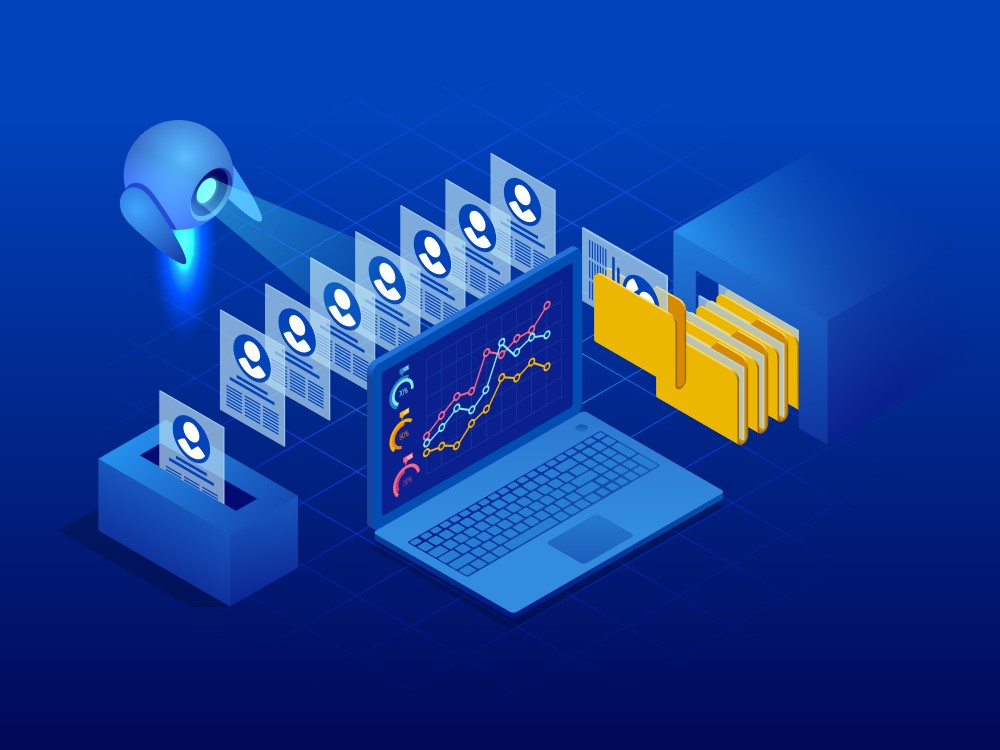Is AI the future of HR?
June 8, 2023
The collapse in the US of Silicon Valley Bank and the ongoing problems faced by the Confederation of British Industry (CBI) in the UK have occurred for two very different but nonetheless extreme reasons.
Yet in the commentary surrounding the two organizations’ failures, a common theme has emerged: Both SVB and the CBI appeared to have relied on groups of individuals with very similar thought patterns, making decisions which were to the detriment of others.
The organizations’ lack of cognitive diversity, it can be argued, is why no one questioned the behaviour of leaders, allowing them to allegedly commit acts of brazen self-interest.
Combining AI with human insights in hiring
In the last edition of The Loop, we explored why leaders needed to seriously look at the cognitive diversity of their organizations. Artificial intelligence has been held up by many as the solution for such problems.
Yet how can organizations take advantage of AI, while still making use of the human insights from a diverse cohort of employees and stakeholders? Can machine and human feedback exist harmoniously, or will they always be in conflict?
AI could plausibly improve hiring processes. Firstly, it has the potential to lighten the workload involved in the hiring process. As a 2018 roundtable of HR leaders run by Spencer Stuart found, algorithms can help analyze resumes to screen for those who best fit the jobs available, resulting in better matches.
AI can, the roundtable participants argued, also help by widening the parameters for candidates, possibly increasing the cognitive diversity of the candidate pool by embracing those with diverse backgrounds and employment histories.
Rather than replacing the feedback available from employees and external stakeholders on different candidates, a study by Tata Communications found that AI has the potential to enhance human collaboration and cognitive diversity within groups.
“AI and robots can inspire us to think deeply about the kind of work we really want to do, how we can change the way we learn, and how we might embrace diversity to create a myriad of new partnerships,” the study reads.
Greater use of AI raises ethical concerns
Yet could a greater reliance on AI make us lose touch with crucial human insight, leading to less effective decision-making? Ethical concerns abound with AI. Leah Christianson and Joy Tan of Russell Reynolds Associates’ Center for Leadership Insight wrote in March about the risk of AI perpetuating discrimination if it is fed an organization’s biased data. This could lead to discriminatory outcomes which are not only detrimental to an organization’s reputation – it could also cut out applicants with varied job histories and life experiences which could be beneficial to employers.
Ezra Klein expressed his fear in The New York Times about AI’s “disrespect for boundaries”. In his example, an AI is trained to become an exceptional personal assistant but, when tasked with booking a table at an exclusive restaurant, Klein argues the AI could reason it needs to cause a disruption that means a third of the potential diners will cancel their reservations so it can secure that table.
Another issue is that AI, with its ability to run large processes quickly, could lead to humans being cut out of those processes entirely. With a computer to aggregate information about candidates, the observations of the hiring panel and of former employers could be sidelined by organizations.
So can you balance the ability of artificial intelligence to think faster and more broadly, with the awareness and imagination of human professionals?

